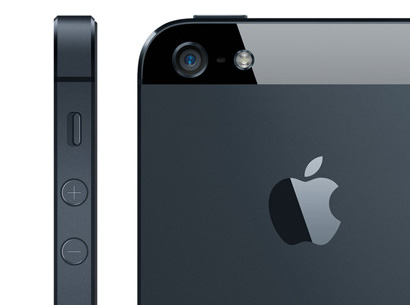Amazon has launched a new Amazon One app for Android and iOS. The app lets you sign up for Amazon's palm recognition technology using your phone without going to a physical location.
Biometrics RSS
X has updated its privacy policy to include biometrics, job, college history, employment preferences, and more to the list of data points it plans to collect from the users in the coming months.
Passage will allow web and mobile developers to eliminate passwords and bring biometrics for a "frictionless user experience". The company will expand the platform with updates in the coming months.
Amazon is forcing its delivery drivers in the United States to sign a new contract that obliges them to hand over biometric data. If the drivers to not hand over their data, they will be fired.
The latest beta channel update for Chrome is rolling out a new feature that lets users "lock" or secure incognito Chrome tabs using Touch ID or Face ID. The rollout is currently staggered.
Qantas and Sydney Airport have formed a partnership which will see how well facial recognition technology can optimise the airport experience. The firms want to see if they can speed things up.
A California judge has ruled that Facebook must face a class-action lawsuit accusing the company of illicitly using facial recognition technology without the explicit consent of its users.
Microsoft and Fujitsu are partnering up yet again, this time to offer users a new way to login to their Windows 10 PCs. The new tech validates your identity by reading your unique palm vein map.
The acquisition of the three-year-old startup comes with no actual explanation of what the social media giant's plans are. But we do know that it has something to do with keeping the community safe.
With the ever-changing landscape of cybersecurity, Microsoft believes that it's time to kill the password, and rely on other methods of biometric authentication, such as Windows Hello.
China's Wuhan city has rolled out an update to its online traffic management platform which allows users to verify their identity with a face scan rather than having to provide physical ID.
The iPhone X with its TrueDepth camera and Face ID have yet to hit the market, yet it looks like Apple has confidence in the technology, which could lead it to abandon Touch ID in future releases.
According to a new report, Samsung has received samples from a handful of companies so that it can make screen-embedded fingerprint readers a reality on the next Galaxy Note handset.
The biometric payment system Fingopay, which uses the unique arrangement of the veins in one of your fingers, might spread to more Costcutters if it succeeds at the Brunel University store.
The TSA (Transport Security Administration) is letting volunteers in two airports use a biometric security check system. This might in the future mean a faster security check process through airports.
The UK's Rail Delivery Group has outlined plans to "harness digital technology" to expand capacity and improve the quality of travel for passengers on the country's congested national rail network.
Microsoft is now considering whether Windows Hello - its password-free biometric authentication platform for iris, fingerprint and facial recognition on Windows 10 - is ready to come out of beta.
In a new proof of concept attack, a team from Michigan State University has demonstrated an ability to successfully spoof fingerprints and gain access to two flagship Android smartphones.
An issue recently discovered by a startup regarding iPhone's Touch ID, found that imprinting a fingerprint on Play-Doh, then on the sensor can make the phone believe a real fingerprint was used.
Windows Hello requires specialized hardware to work but users can now emply their Kinects for this very purpose. Follow the tutorial on how to sign in to Windows 10 with your Kinect v2.
Twins were used to test Windows Hello's accuracy. One twin was to register her face in the system, while the other tried to login as the former. Hello was able to tell twins apart, for its results.
The Chaos Computer Club, a security research organization formed in 1981, has figured out a way to forge fingerprints by using only pictures of the fingers. What does this mean for biometric security?
As TechEd continues, we are learning more and more about what to expect in the upcoming version of Windows 8. Today, Microsoft went into details discussing their plans for biometrics.
Apple's next generation iPhone may come equipped with near field communication and fingerprint scanning technology to improve the security of mobile payments with Chipbond providing the components.
Researchers at Intel think they have found a a replacement for passwords by waving your hands in front of the screen, after which the system recognizes the pattern of veins in the palm of your hand
The US Federal Bureau of Investigations (FBI) is embarking on a $1 billion project to build the world's largest computer database of biometrics to give the government more ways to identify people at home and...
Researchers from Clarkson University in New York have managed to fool biometric systems by making fingerprint copies using Play-Doh. Testing a range of biometric technologies the team created 60 fake fingers which were successfully authenticated...
Everything from fingerprint to facial patterns to iris scanners are becoming more and more prevelent in society all over the world. Once primarily used in large corporate and military settings, biometrics are showing up in...
AuthenTec, a maker of fingerprint-recognition sensors, announced on Monday that it had signed a deal with Microsoft to integrate software support for biometrics into the Windows operating system. AuthenTec will create a reference driver that...

















_-_img_1104_medium.jpg)























